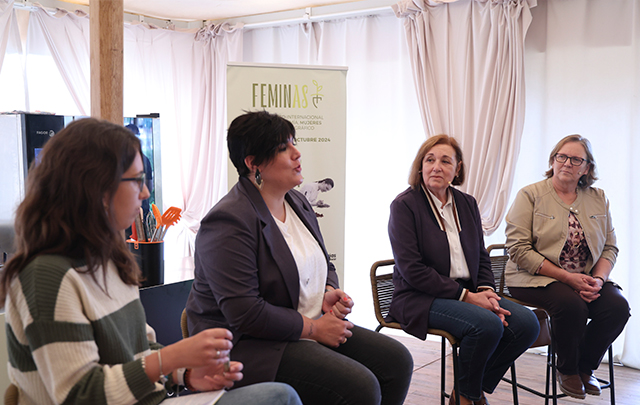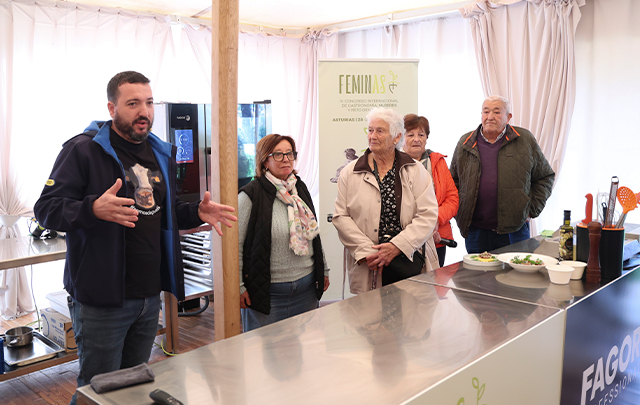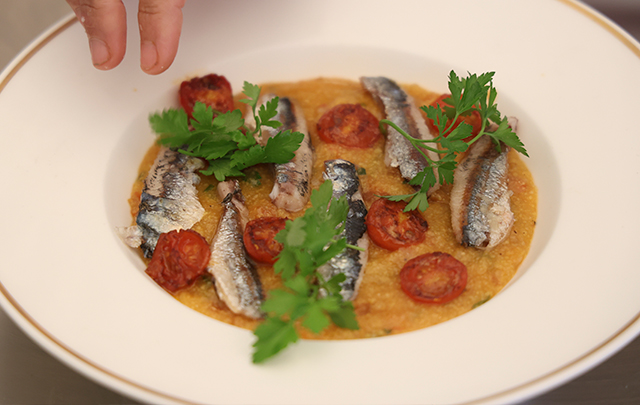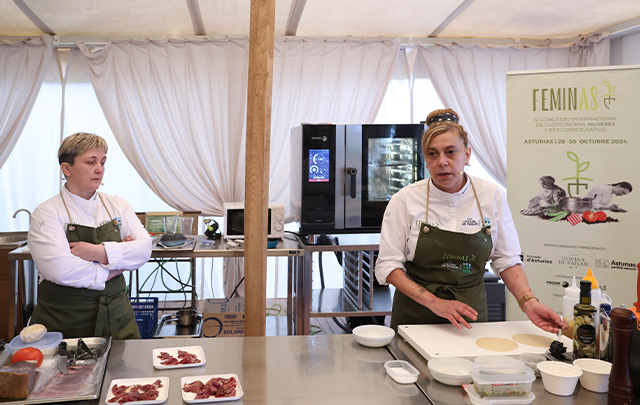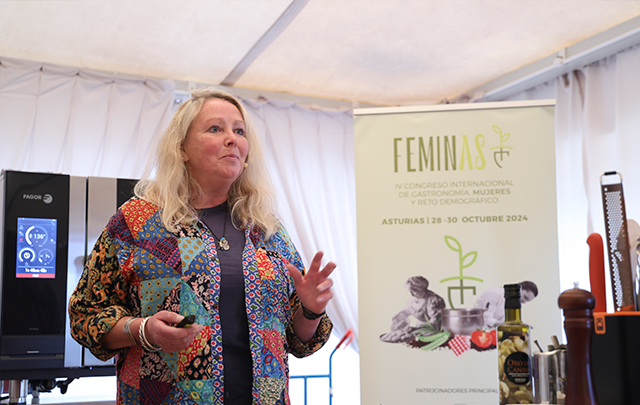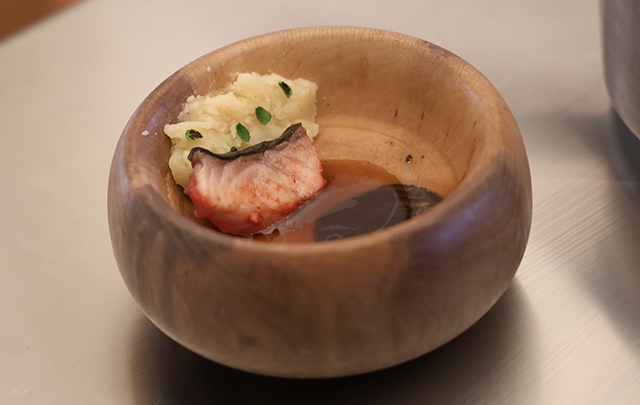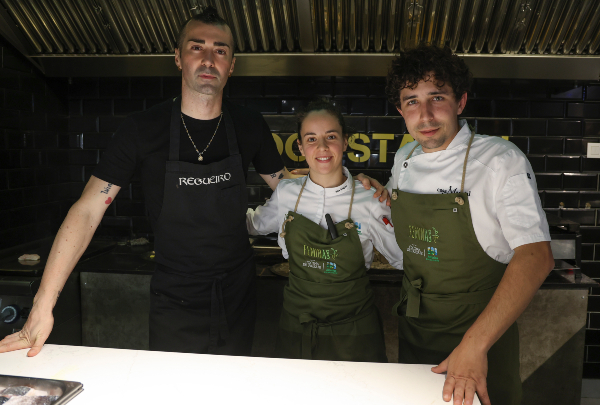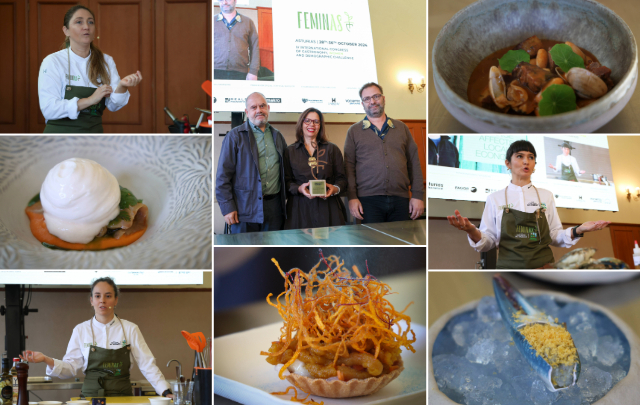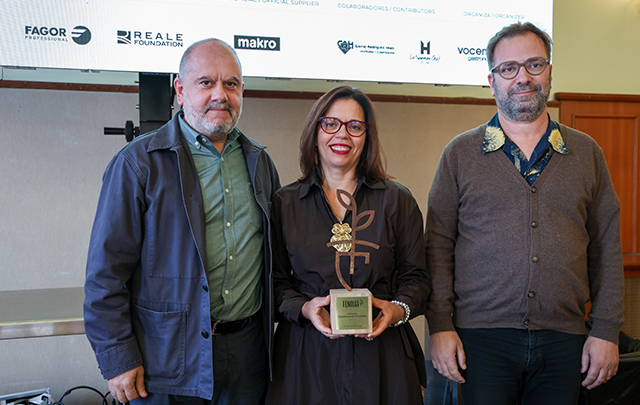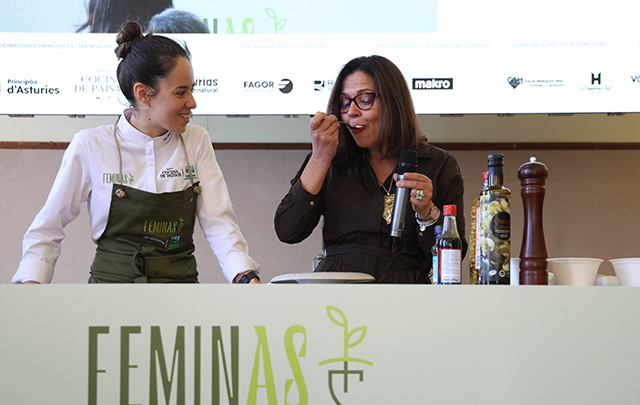News
FéminAs sees the return to the villages as an opportunity for the future of the new generations.
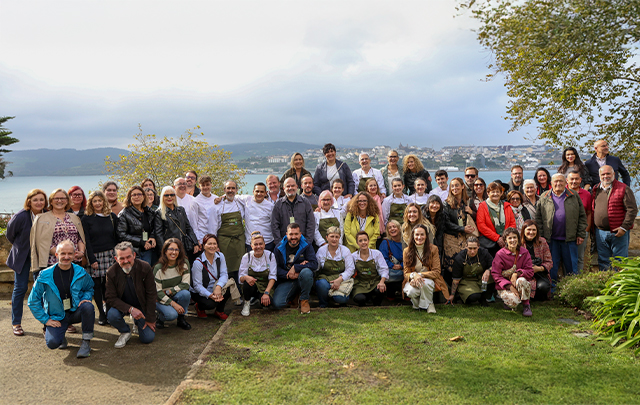
FéminAs, the International Conference on Women, Gastronomy and the Demographic Challenge, has established itself over its four editions as a platform to make visible the contribution of women to gastronomy and rural communities, as a driving force in agri-food businesses and restaurants, and as custodians and transmitters of cuisine and memory. A memory that is not in contradiction with the future, but the way to build it.
We have learnt that rural areas can be revitalised from an endogenous point of view, with their own products: game, cheeses, kitchen gardens, forests and local history," said Benjamín Lana, director of the congress, during the closing ceremony. FéminAs, sponsored by the Principality's government through Asturias, Cocina de Paisaje and Asturias, Paraíso Natural, was also a loudspeaker for proposed solutions and demands, such as making it easier for rural restaurants to buy legally from their neighbouring producers, as requested by guisanderas Mary Fernández and Mirta Rodríguez in their presentation.
Perhaps the most graphic image of women's invisibility came from the Galician chef Lucía Freitas (A Tafona*, Santiago de Compostela), who likened gastronomy to "an iceberg where the cooks are the tip and the women are the base and the food". Even if we seem to be going against the laws of physics, we are going to turn the iceberg around," said Lana, who added that another objective of FéminAs is and will be "to ensure that rural society is never again understood as a failed society, that staying is not the brave choice but the logical one". Shortly before, the Asturian chef Elio Ferpel had proclaimed in his speech that "the future is in the villages". The people and the tenacious and often invisible female society.
A moving and emotional final day
The third and final day of Féminas was a plea for the usefulness of memory in planning the future of villages, especially those threatened by depopulation.
A gastronomic restaurant in a village of twenty inhabitants in the Pyrenees of Huesca, a cattle farm in an abandoned village in western Asturias, or an experiential tourism project based on whisky in the depopulated Scottish Highlands were some of the inspiring examples presented on the third and final day of Féminas, which took place in a place as evocative and beautiful as the Figueras Palace in Castropol, the last stop on the itinerant congress sponsored by the Government of the Principality, which this year toured the region, exploring the pantry and recipes of western Asturias.
The morning began with Iris Jordán, a young chef from Huesca who, together with her brother, has gone the other way from many young people in her area to return to her village of 20 inhabitants in the Pyrenees to take charge of the restaurant Ansils (Anciles). Researching the practices and recipes of his elders, making the most of each product and drawing inspiration from his own memory to offer a story to his customers are his hallmarks. For Iris, 'sustainability is what has always been done in our village'.
From Scotland comes the inspiring experience of the writer and journalist Ghillie Basan, who has chosen to live in the Highlands, an unpopulated region in the north of Scotland, and has managed to put the area on the map by publishing recipes, stories and photographs and, finally, by offering gastronomic tourism experiences based on whisky through her project Spirit&Spice.
Guisanderas Mary Fernández and Mirta Rodríguez (this year's winner of the best Asturian stew) took to the stage to explain how they bring to their restaurants the essence of western Asturias, which they sum up as: the Cantabrian Sea in all its wild splendour and the mountains, to which Mirta Rodríguez feels so attached that she has created a herd of native breed oxen to bring life back to the village that her family was the last to leave. Moved by this memory, she and Maryi asked the authorities to draw up rules allowing restaurants to legally buy produce from their neighbours. The only way to keep the villages alive is to allow the economy of those who remain to breathe, and at the same time to enjoy a unique product instead of buying it from the supermarket," they said.
Noélia Jerónimo, an institution of Portuguese cuisine, shouted 'Long live women' before leaving the stage. She has managed to shine and become a point of reference for a traditional restaurant, Noélia e Jerónimo, which manages to connect with the memory and soul of its customers. The chef not only defended traditional recipes, but also the markets, to which she invited young people to return, because "there you can find products from our environment", she said.
Asturian chef Elio Ferpel, concluding that "village life is the future". His own reality is the best proof: in addition to a Michelin-starred restaurant, he runs a market tavern and a few butter shops. (Ferpel Gastronómico*, Ortigueira) talked about his project to document recipes by recording his neighbours, along the lines of 'A gostar de la propria cocinha portuguesa' by Portuguese filmmaker Tiago Pereira, winner of this year's Guardianas de la Tradición prize, but with a local focus. Without stew there is no creativity, but stew is in danger, as are traditional artisans and food markets," he said.
The round table discussion with three successful Asturian livestock farmers ended the last day of the congress with an interesting conclusion: "Two small farms consolidate the territory more than one large one". Mari Cruz Fernández, co-owner of Ganadería San Martín; Tatiana Álvarez, founder of Ca Mamina, and Marta Pérez, founder of Casa Flora, highlighted the historical role of women in dairy farming and how the commitment to quality, the elimination of intermediaries through direct sales and innovation are ways to achieve sustainability in the sector.
At the closing ceremony, Benjamín Lana thanked Asturias for its support of FéminAs and the restaurateurs, hoteliers and inhabitants of the towns in western Asturias through which the congress passed for their hospitality. The DANA and its disastrous consequences in the Valencian Community prevented the Vice-Minister for Tourism of the Principality of Asturias, Lara Martínez, from presiding over the event, as the government of the Principality decided to cancel all its official ceremonies.


